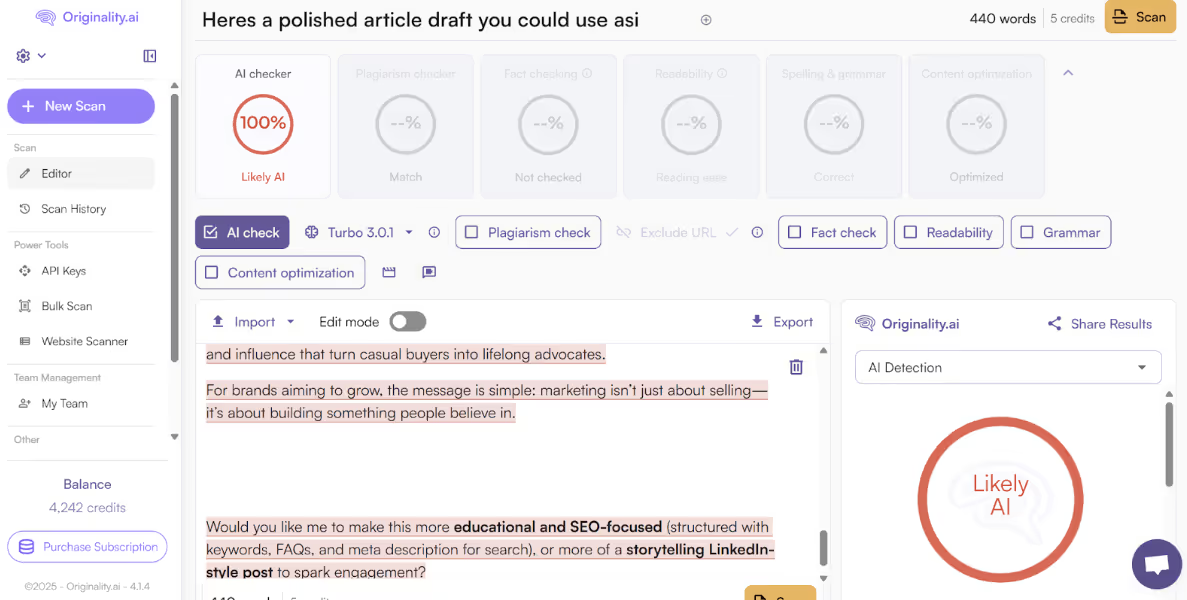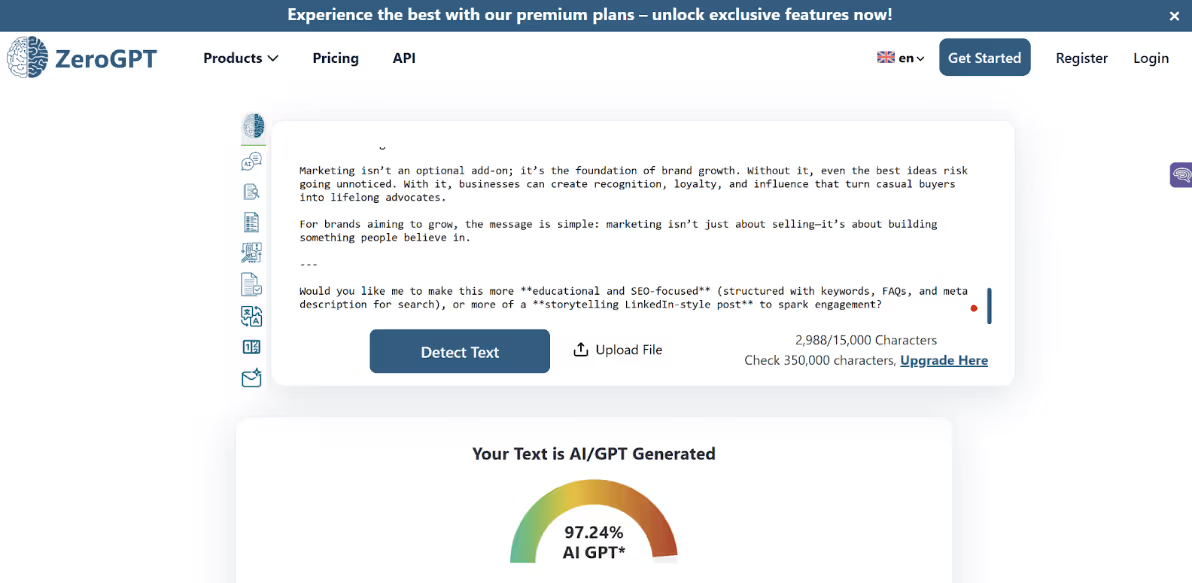
As AI writing tools become part of everyday use, detection platforms are becoming increasingly important.
Industry-leading tools like Originality.ai are trained to spot AI content, whether it’s generated by an LLM or humanized (check out our accuracy study for more insights)
Then, an additional market has appeared, filled with tools built to “humanize” AI text with the aim of helping it to slip through undetected.
In this review, we put Humanizer.tech to the test, identifying whether its AI humanizer can really make AI content seem human-written.
Humanizer.tech’s AI humanizer is an AI Humanizer tool. Tools like these have emerged due to user demand looking to slip past content detectors.
Rather than producing new content, like tools such as ChatGPT, the Humanizer.tech AI humanizer takes AI-written content and reworks it, attempting to bypass detection and pass the copy as human-written.
Many users are drawn to Humanizer.tech AI humanizer because of its central promise to turn AI-written text into copy that reads as if it were written by a human.
AI-generated content is often criticized for being formulaic, repetitive, or missing the nuance and variation found in human writing (it’s one of the common issues with AI writing).
Essentially, the rising popularity of AI humanizers is due to users looking for tools that can help them turn bland and generic AI writing into something that sounds more natural.

The Humanizer.tech AI humanizer tool is completely free to use (for up to 10,000 words per month). No need for an initial sign-up, just input text and get started.

To evaluate whether the Humanizer.tech AI humanizer lives up to its claims, we carried out a structured test using three widely used AI detection tools: Originality.ai, Writer, and ZeroGPT.
Step 1: We began by asking ChatGPT to generate a fresh article on the subject of brand marketing. This unmodified draft served as our control example, which was a straightforward piece of AI-written content that the detectors should have no trouble flagging.
Step 2: That baseline version was then pasted directly into each of the three detection platforms, allowing us to record how strongly they identified the text as AI-generated.
Step 3: We then ran the same article through Humanizer.tech’s AI humanizer, creating a new version that ‘should’ bypass AI detection in each tool.
Step 4: We then submitted the humanized article back into the detectors to measure whether the rewritten text could actually evade detection, or if the tools would still recognize it as AI-produced.
Original content (AI-generated): 100% Confidence that the text is Likely AI

Humanizer.tech AI Humanizer Version: 100% Confidence that the text is Likely AI

Original content (AI-generated): 85% Human-generated (15% AI-generated)

Humanizer.tech AI Humanizer Version: 91% Human-generated (9% AI-generated)

Original content (AI-generated): 97.24% AI-generated

Humanizer.tech AI Humanizer Version: 97.74% AI-Generated


The data from our study shows that Humanizer.tech AI Humanizer did not make text undetectable. The best-in-class Originality.ai AI detector could still identify it confidently as AI-generated text.
Here’s a quick snapshot of the results:
The overall takeaway? The tool fails to reduce detection against industry-leading tools like Originality.ai, which remained confident in flagging the content as 100% Likely AI.
Read more AI Humanizer Reviews:
The Humanizer.tech AI Humanizer is a tool designed to rewrite AI-generated text so it appears more natural, human-like, and less detectable by AI detectors.
It uses advanced rewriting algorithms and linguistic models to adjust sentence structure, word choice, and tone, making AI-generated content sound closer to authentic human writing.
The Humanizer.tech AI Humanizer did not bypass industry-leading tools like Originality.ai.
Ethics is contextual — using AI humanizers for personal projects, drafts, or inspiration can be fine, but passing off AI-altered work as fully original in academic or professional settings may raise ethical issues. Read more about the ethics of AI content.
